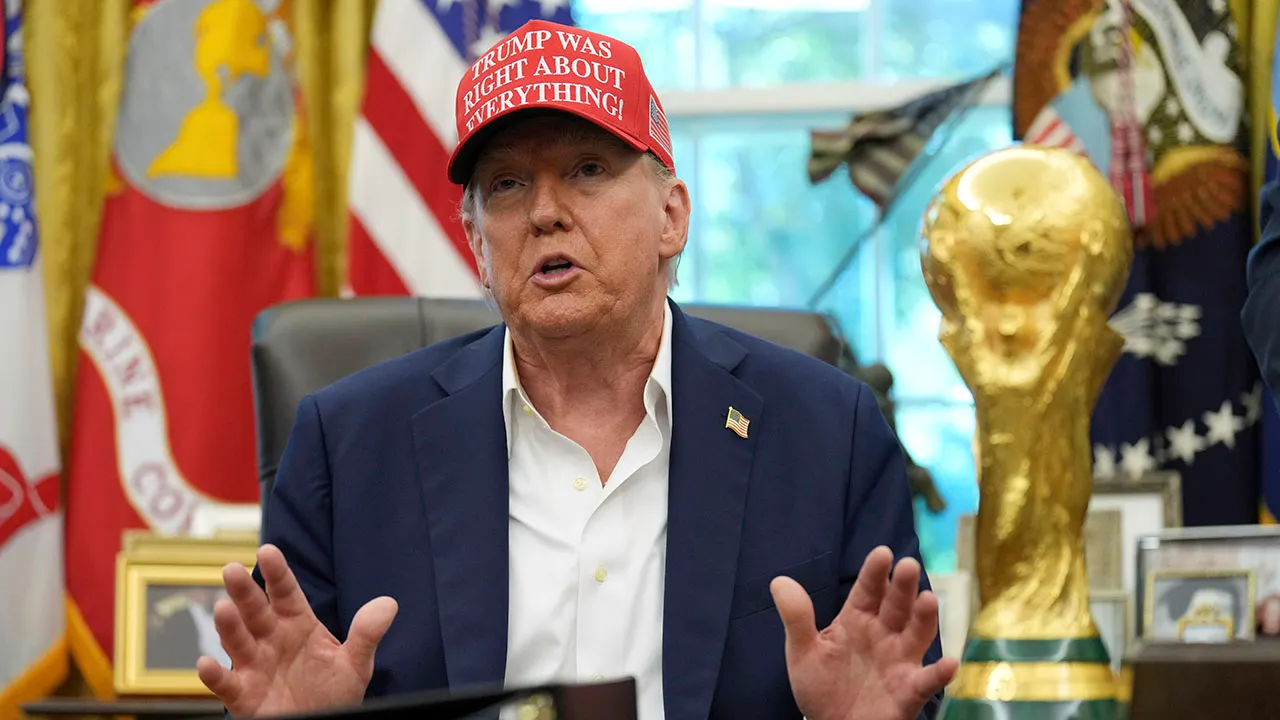
MORNING GLORY: Are President Trump’s tariffs actually working?
Entities mentioned:
- President Trump: Ambition, Competitive spirit, Control
- Congressional Budget Office (CBO): Duty, Professional pride, Influence
- Phillip Swagel: Duty, Professional pride
- Dr. Richard McKenzie: Professional pride, Skepticism, Curiosity
- Peter Navarro: Loyalty, Determination, Influence
- Hugh Hewitt: Curiosity, Influence, Recognition
Article Assessment:
Credibility Score: 65/100
Bias Rating: 70/100 (Lean Right)
Sentiment Score: 55/100
Authoritarianism Risk: 45/100 (Mixed/Neutral)
Bias Analysis:
The article leans right, evidenced by its favorable framing of Trump's policies and skepticism of traditional free-market positions. While it includes some opposing viewpoints, the overall tone suggests support for reconsidering tariffs in a positive light.
Key metric: US Budget Deficit
As a social scientist, I analyze that this article presents a surprising report from the CBO suggesting that President Trump's tariffs could significantly reduce the US budget deficit. The article challenges conventional free-market wisdom about tariffs, presenting data that contradicts expectations of negative economic impacts. It explores the tension between free-trade principles and the potential fiscal benefits of tariffs, while also raising questions about presidential authority to impose such measures. The analysis includes perspectives from economists and considers the broader implications for economic policy and political ideology. The article's framing suggests a potential shift in how tariffs might be viewed by traditionally free-market conservatives, while also acknowledging ongoing debates and legal challenges.

'Doctor Strangelove with a mustache': Bolton blasted for 'profiteering' off US secrets by White House advisor
Entities mentioned:
- Peter Navarro: Loyalty, Moral outrage, Indignation
- John Bolton: Ambition, Recognition, Greed
- Donald Trump: Power, Control, Loyalty
- FBI: Justice, Duty, Security
- Nicolas Maduro: Power, Self-preservation, Control
- Judge Royce Lamberth: Justice, Duty, Professional pride
Article Assessment:
Credibility Score: 65/100
Bias Rating: 65/100 (Lean Right)
Sentiment Score: 30/100
Authoritarianism Risk: 55/100 (Mixed/Neutral)
Bias Analysis:
The article leans right, primarily due to its reliance on criticisms from a Trump advisor and focus on potential wrongdoing by Bolton. While it includes some balancing information, the overall framing favors a conservative perspective on government secrecy and loyalty.
Key metric: National Security Integrity
As a social scientist, I analyze that this article highlights the tension between government secrecy and public disclosure in the context of national security. The raid on Bolton's residence and the subsequent criticism from Navarro underscore the potential risks to national security when former officials publish memoirs containing sensitive information. This situation impacts the National Security Integrity metric by potentially compromising confidential strategies and weakening trust within government circles. The article also reveals the complex interplay between personal ambition, loyalty to administration, and perceived duty to inform the public, which can have lasting effects on how sensitive information is handled in government positions.